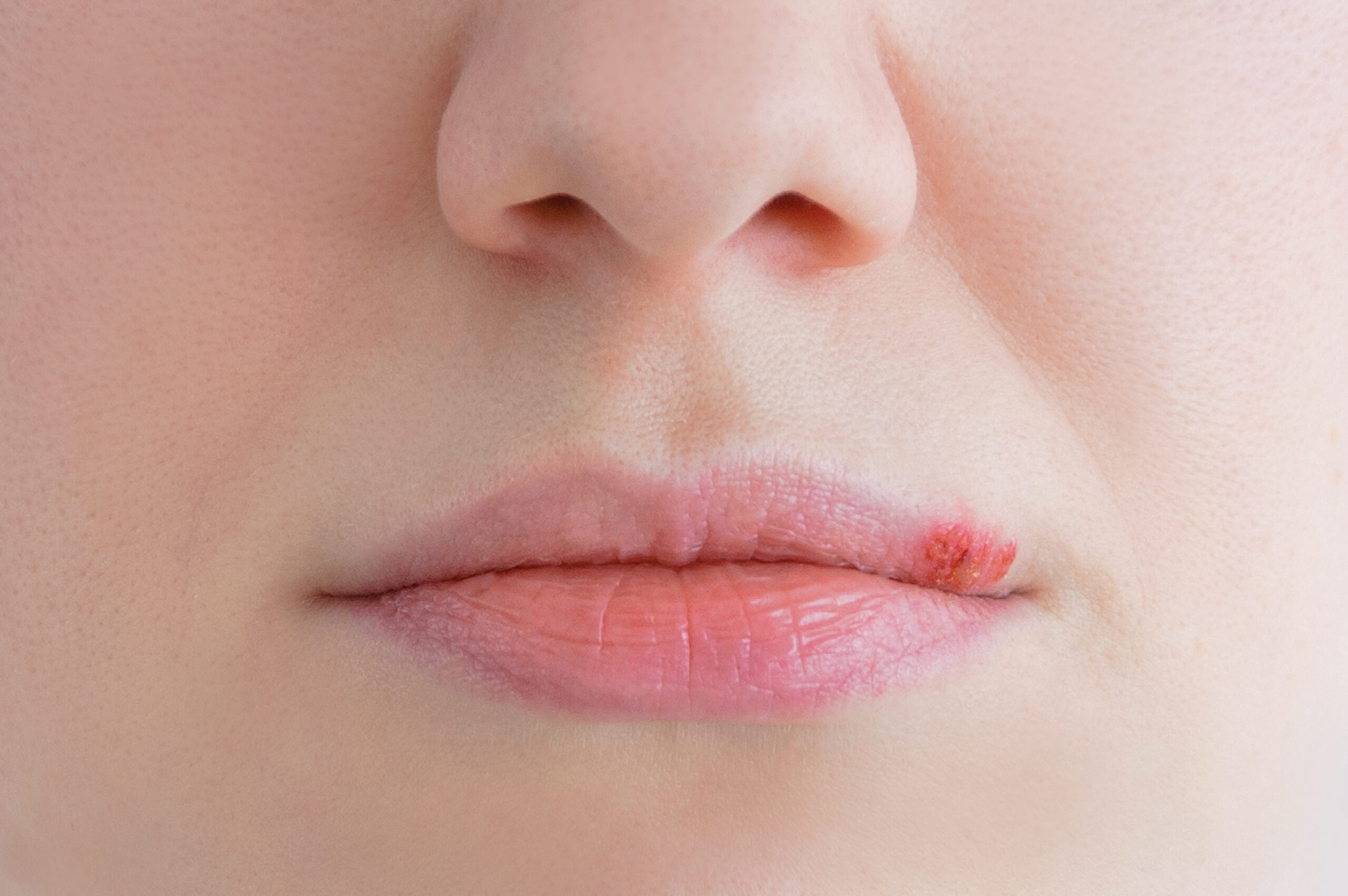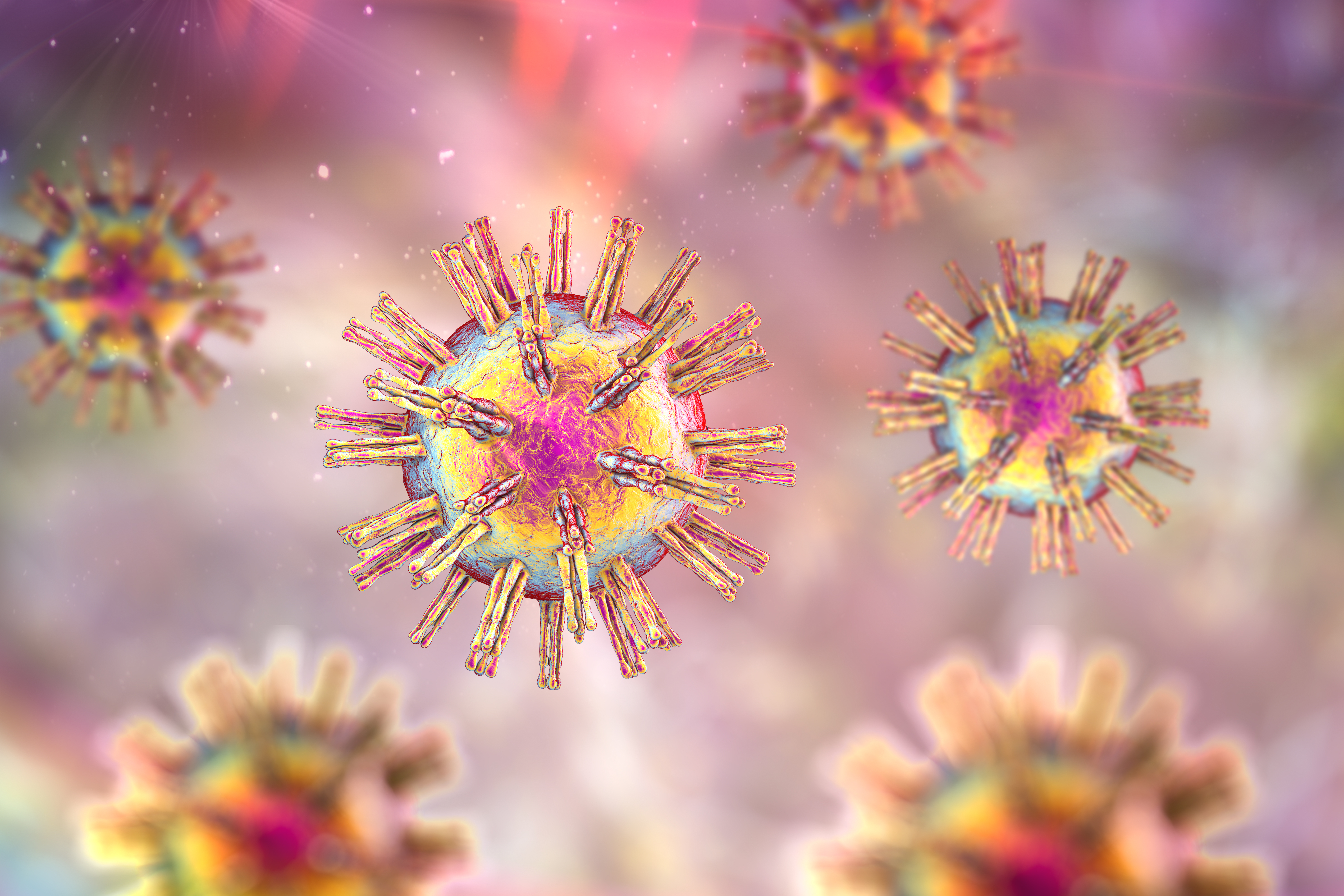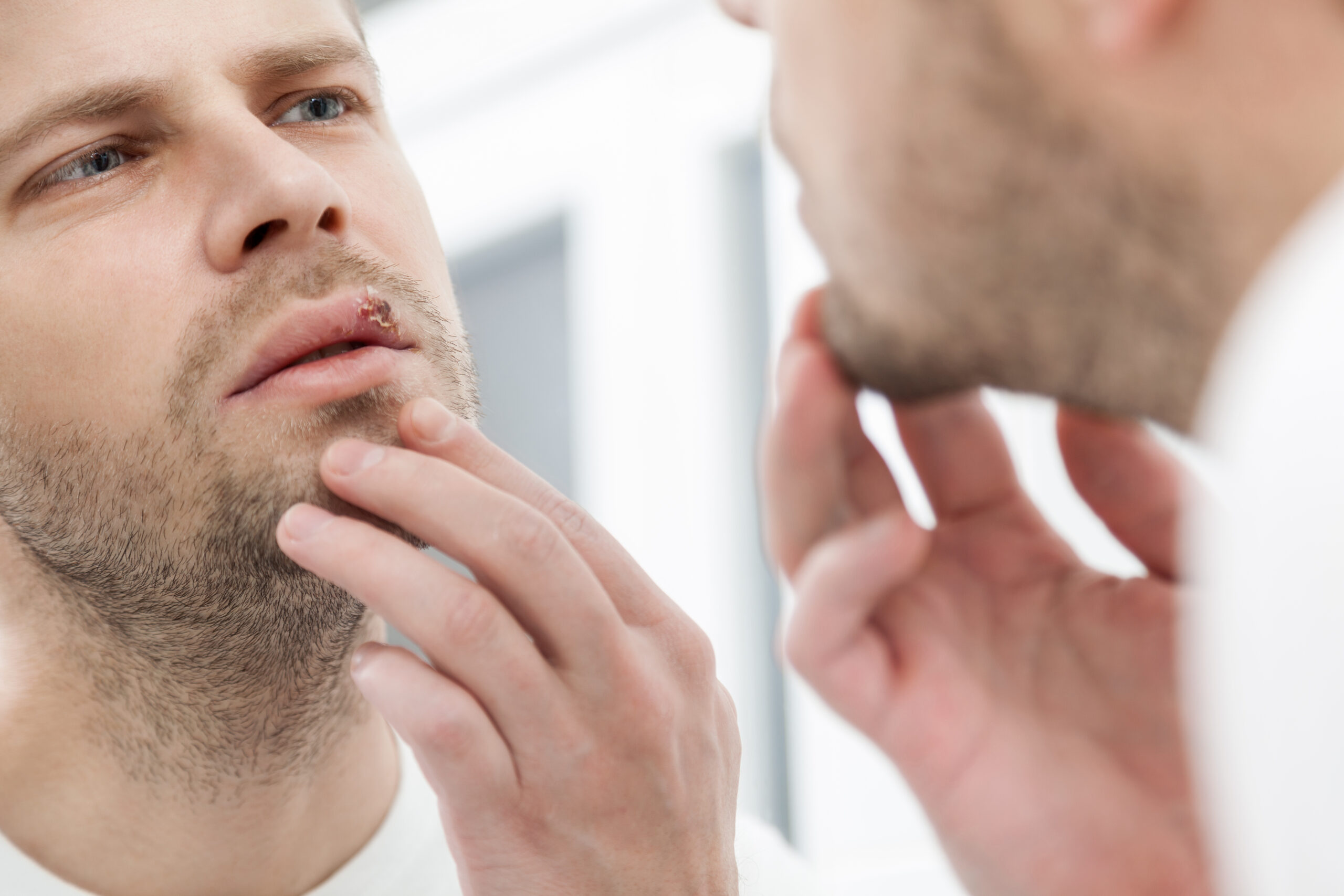No matter a person's age or gender, they can contract herpes. Transmission of the virus can occur during childbirth, with infants being particularly affected during the periods of 1-5 years old.
HSV-2 is more commonly found in older individuals and is generally passed when bodily fluids are exchanged (i.e. saliva or any discharge from the genital area). It can also be spread from the items an infected person has previously handled. Infection is also transmitted through sexual contact.
The herpes virus in the body is reactivated under the influence of particular circumstances. During this time, the pathogen can easily be transmitted, and other people can get infected. Recurrence of infection usually occurs under the influence of factors such as:
Herpes is caused by the Herpes Simplex Virus (HSV). Herpes is an infectious disease. According to the WHO:
The figures may not be 100% accurate as some who get the virus do not get sick, but they can still spread it to others. These individuals are called carriers.
The virus enters the body and stays dormant until the host is alive. The HSV-1 virus most often enters the trigeminal ganglion (the nerves supplying the face area), and the HSV-2 virus enters the lumbosacral ganglion (the nerves supplying the genital area). The HSV virus is reactivated under various factors, and herpetic inflammation of the skin, mucous membranes, or other organs develops.
Herpes is a common disease that may be asymptomatic in some patients, while in others, it recurs several times a year. There are effective herpes medications. Thanks to this, patients can take them shortly after the appearance of the first symptoms, alerting them to the recurrence of the infection. Topical herpes preparations mask unsightly blisters on the lips, thus improving patients' quality of life.

Members of the Herpesviridae family are responsible for various illnesses, such as herpes, chickenpox, and shingles. They have the ability to enter a dormant condition, which means they can remain inactive after illness has occurred, but can then reactivate at a later time in life.
The herpes simplex virus type 1 (HSV-1) is responsible for the most cases of oral herpes. As a primary infection, it may take the form of gingivitis, pharyngitis, or tonsillitis. It is then accompanied by fever. The disease usually presents as blisters around the lip area (cold sores) during recurrent infections.
HSV-2, the leading cause of genital herpes, occurs less often than type 1. Unlike HSV-1, HSV-2![]() infection usually is not acquired in childhood but during sexual contact or, rarely, during childbirth. Getting the HSV-1 kind of virus does not protect against catching the HSV-2 type.
infection usually is not acquired in childhood but during sexual contact or, rarely, during childbirth. Getting the HSV-1 kind of virus does not protect against catching the HSV-2 type.
Genital herpes is the most common sexually transmitted infection. It often has few symptoms, without typical vesicles, or is entirely asymptomatic, which is why most infected people are unaware that they are infected.
Common lesions associated with genital herpes infection include papules and vesicles on the outer surface of the genitals that resemble cold sores on the lips.
It is significant to keep in mind that although HSV-1 is basically the cause of cold sores and HSV-2 typically holds accountable for genital infection, both of these viruses can produce conditions in the genitals and mouth.
No matter a person's age or gender, they can contract herpes. In fact, transmission of the virus can occur during childbirth, with infants being particularly affected during the ages of 1-5 years old.
HSV-2 is more commonly found in older individuals and is generally passed when bodily fluids are exchanged (i.e. saliva or any discharge from the genital area). It can also be spread from the items an infected person has previously handled. Infection is also transmitted through sexual contact.
The herpes virus in the body is reactivated under the influence of particular circumstances. During this time, the pathogen can easily be transmitted, and other people can get infected. Recurrence of infection usually occurs under the influence of factors such as:

Herpes symptoms may vary depending on where it occurs. In many people, the virus can lie dormant for a long time without causing any symptoms.
In the case of primary infection, some people may experience general symptoms, including:
In addition, infection may often be associated with loss of appetite and nausea.
At the site where the virus enters (usually through the mucous membrane, less often through damaged skin), the infected person experiences symptoms preceding the appearance of changes – pain, burning, itching, and tingling.
Approximately two to three days after exposure, a rash appears, which is then followed up by the development of small, painful blisters filled with clear fluid. These blisters can ultimately burst, leaving behind ulcers and erosions.
Generally, the lesions heal without any trace, but in those who experience primary infection, the lesions may stay for a few weeks. In recurrent infections, the lesions are concentrated in a smaller area and disappear after 10–12 days.
Blisters may occur on the conjunctiva or cornea of the eye. This is a dangerous form of herpes that can lead to cornea scarring and even vision loss if left untreated or with frequent relapses. Blisters may also appear on the eyelids![]() .
.
The estimated annual incidence of herpes encephalitis is approximately 1 in 500,000 people![]() , so it is a rare but dangerous disease. Children and young people are most often affected.
, so it is a rare but dangerous disease. Children and young people are most often affected.
Common symptoms include:
The mortality rate of patients is high even despite antiviral treatment. Herpes encephalitis leaves permanent consequences in most adult patients.
In the case of babies, there may be two ways of getting a herpes infection: mainly through childbirth when catching the virus from the mother or by transmitting the oral herpes virus through kissing, touch, or contact with surfaces or objects with the virus on it.
Skin lesions may appear in newborns all over the body. In some cases, it can even lead to the infection moving to the central nervous system. If this happens, a baby may experience seizures, an aversion to light, or abnormal tiredness and drowsiness. Herpes virus infection![]() in children often has a severe course, including multi-organ involvement and death.
in children often has a severe course, including multi-organ involvement and death.
Herpes on the lips may have various causes – the virus may be reactivated, for example, as a result of:
The development of herpes may also be favored by excessive exposure to UV radiation, cold, and fatigue.
It’s essential to remember that people who have sexual contact with someone with genital herpes are at greater risk of catching the disease.
To diagnose the disease, a doctor is assessing the skin lesions. This will help the doctor to identify any signs or symptoms. Depending on the area affected, further testing might be necessary. For instance, when dealing with genital herpes, a gynecological and urological assessment will be conducted. If the herpes is around the eye, then an ophthalmological examination will need to take place. When in doubt, the doctor orders the following tests![]() :
:
The use of advanced methods that involve testing for antibodies or HSV genetic material makes it possible not only to find the virus but also to tell apart its various types and the amount of the virus inside the body.
Hospitalization and additional assessments, such as scans or biopsy, are needed for multi-organ infections or severe cases of the disease.
Herpes symptoms may disappear on their own within 1-2 weeks. However, using antiviral drugs and other preparations shortens the duration of symptoms and significantly alleviates unpleasant symptoms. This results in less discomfort experienced by patients and an improvement in their quality of life.
In most cases, you can treat cold sores on your own. However, seeing a doctor is required if the symptoms are severe or do not improve despite treatment. This also applies to primary infections that require proper diagnosis. Seeing a doctor is also necessary if lesions appear around the eyes or genitals.
Herpes treatment involves using oral or topical medicines that alleviate the symptoms of the disease. Presently, there is no medicine that can get rid of the virus and stop it from coming back.
Taking oral antiviral drugs is the most effective option to stop the virus from spreading and multiply. The medical treatment should be started immediately after the first signs appear, such as pain, burning sensation, or numbness. Therapy should not start later than 48 hours![]() after skin lesions appear. Antiviral drugs are used several times a day, depending on the dose, and the duration of treatment is usually five days.
after skin lesions appear. Antiviral drugs are used several times a day, depending on the dose, and the duration of treatment is usually five days.
Antiviral medicine used for herpes relieves the symptoms and shortens its duration, but it should be remembered that it does not cure the disease completely. After the symptoms disappear, the virus remains dormant in the body, and symptoms may return.
There are many home remedies for herpes, but their effectiveness is not scientifically proven. However, they can be an addition to medical treatment. Home remedies include using:
Other home remedies, such as applying garlic or onion to the skin lesions, are not a good idea. While these products are known for their many health-promoting properties, there is insufficient scientific evidence to support their beneficial effects on the treatment of the disease.
During the manifestation of skin lesions, especially in the genital area, you should refrain from sexual contact.

Herpes is particularly dangerous for the developing fetus and newborns. A primary infection in the mother is more hazardous for the fetus than a disease recurrence.
Herpes infection in a pregnant woman may result in many diseases and developmental defects in the child: seizures, inflammation of the eye, and glaucoma are some possible complications. Miscarriage or premature birth may also occur. Transmission of the virus to the baby during the perinatal period causes the appearance of typical herpes symptoms in the baby. The infection may have serious complications![]() : inflammation of the brain or liver may develop, and ultimately, the disease may be fatal.
: inflammation of the brain or liver may develop, and ultimately, the disease may be fatal.
In people with a well-functioning immune system, the disease is usually not severe, even if it occurs for the first time. The condition has a low mortality rate, most often concerning newborns, patients who have developed brain inflammation, and people with weak immune systems. In these situations, a doctor must diagnose the disease and implement appropriate treatment quickly.
At this time, a full recovery from herpes is not achievable. A majority of people have antibodies for this virus, making prevention of transmission difficult. Nonetheless, you can reduce the chances of catching it by keeping proper hygiene.
These are some suggestions that are beneficial to minimizing HSV exposure:
At this point, no vaccine exists that can keep someone from contracting either HSV-1 or HSV-2. If the condition reappears regularly or is especially bothersome, the physician might suggest preventive therapy with antiviral medications. The treatment lasts from several months to even several years. It reduces the risk of relapses, thus improving the quality of life of sick people.
Mild, small lesions caused by the disease generally do not require medical attention. Medical attention should be sought for extensive lesions, herpes that have appeared for the first time, and when there are risk factors for a severe course of the disease, such as a weakened immune system, taking steroids, or cancer treatment.
Patients with neurological symptoms and lesions in the eye area require urgent medical attention.
Genital herpes requires treatment. Seeing a doctor quickly is essential because antiviral treatment given at the beginning of the infection is much more effective than treatment given later.